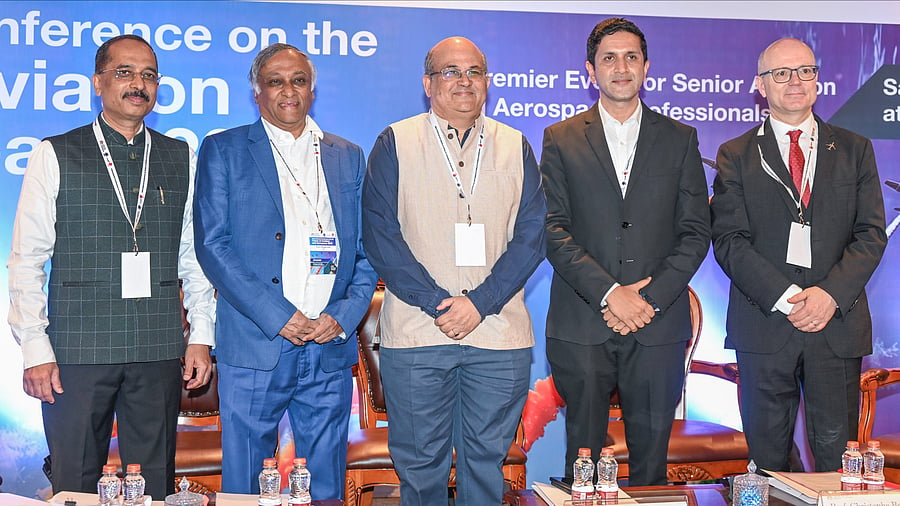
Panelists at the conference hosted by IIM Bangalore in partnership with TBS Education, France.
Credit: DH PHOTO/SK DINESH
Bengaluru: India must capitalise on the current geopolitical shift for the aviation industry to grow rapidly, aviation industry experts said at the 8th International Conference on the Future of Aviation and Aerospace (FoAA).
The conference was hosted by IIM Bangalore in partnership with TBS Education, France. The agenda covered India’s increasing role in global supply chains, the potential of Make in India, and emerging innovations such as eVTOL, drones, and AI-powered aviation systems.
During one of the panel discussions, Srinivasan Dwarakanath, Director General of Aerospace India Association, highlighted India’s readiness not only to participate in but also lead the global aerospace value chain. "India should aim to increase its share from less than 1-10% of the global aviation supply chain," he stated.
Panellists — CEO of JJG Aero Anuj Jhunjhunwala, Joint MD of Sansera Engineering FR Singhvi, and SVP and CTO of Cyient Kaushal Jadia — spoke on the importance of seizing current opportunities arising from geopolitical shifts following the US-China tariff and trade war.
Singhvi urged Indian firms to overcome the fear of failure and invest in R&D. "We must move from the colonial throwback of being obedient followers to fearless innovators," he said.
The panel discussion on 'Exploring market potential for aviation' featured Sunil Bhaskaran, Director of the Air India Aviation Academy, Prof Shainesh G, Conference Chair of IIMB.
"The aviation ecosystem is seeing tremendous growth, with an order book of over 1,700 aircraft. In this context, we need trained manpower — 30,000 to 35,000 pilots in the next five years. We need to produce skilled manpower not only for India, but also for the developed world," Bhaskaran said.
He also pointed at the sustainability challenges in aviation. "Fossil fuels will likely not be replaced until 2050; Sustainable Aviation Fuel (SAF) costs four to five times more than fossil fuels, but India has huge potential in solid waste management. By 2027, all flights may be required to use 1%-2% SAF," he remarked.
Bhaskaran said the upcoming second airports in Mumbai and Delhi, along with the proposal for a second airport in Bengaluru, were positive signs for the aviation industry.
